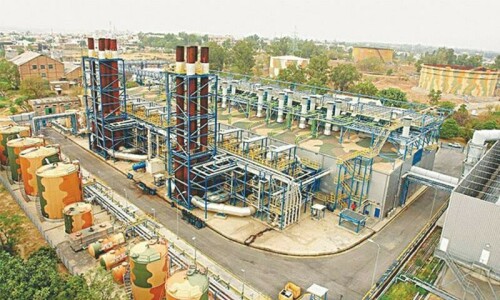THE world is intricately linked, but nations are becoming increasingly inward-looking, challenging the concept of import substitution, free trade and globalisation. These concepts present economic opportunities, but balancing global economic connections with the preservation of local interests is an ongoing concern. The concept of a ‘moral economy’, which highlights how economic behaviour and decisions are influenced by societal norms and values rather than just by market forces and profits, seem to be gaining firmer ground.
The idea of a ‘moral economy’ comes from the English historian and writer E.P. Thompson, who came up with the term ‘moral economy’ while studying the 18th-century food riots in England. According to The Economist, “the rioters, he argued, were not motivated purely by empty bellies, but by a belief that the bakers, farmers and millers had violated paternalist customs, which suggested they should limit their profit, sell locally and not hold back grain. Gradually, Thompson argued, the moral economy was being displaced by a market economy, in which prices follow the amoral logic of supply and demand, rather than ideas of what would be a ‘fair price’ in times of scarcity”.
His concept of the ‘moral economy’ still holds appeal. “Respondents to [Bulgarian-French economist Stefanie] Stantcheva’s surveys suggested that inflation widened the gap between rich and poor, while businesses allowed prices to rise because of corporate greed. They also ‘tend to believe that employers have a lot of power and discretion in setting wages’, notes Ms Stantcheva. In their view, inflation is not a phenomenon that emerges from hundreds of millions of people taking trillions of decisions. It is something inflicted on them by people at the top of the totem pole. ... In a moral economy, concerns about what is right and wrong outweigh efficiency, imposing a cost on those assigning blame as well as those being blamed.”
In Pakistan, ‘moral economy’ provides insights into various socioeconomic dynamics and challenges. It’s a complex trade-off, with cultural and social factors influencing economic behaviour — given the short-sightedness in policy decisions, the early stages of the business maturity lifecycle, and the writ of government and regulators. Hence, the pervasive rent-seeking and elite capture.
Global resources are becoming increasingly scarce and their deployment in terms of the best socioeconomic returns is a must.
Global resources are becoming increasingly scarce and their deployment in terms of the best socioeconomic returns is a must, especially in Pakistan’s case, where over 95m souls live below the poverty line.
The definition of a ‘moral economy’ varies. In the West, it is focused on ‘climate compliance’. Its relevance, however, can also incline towards more fundamental issues, like the allocation of budgetary revenues in Pakistan, which makes fiscal account imbalances the single biggest culprit responsible for our ills, particularly the unproductive diversion of our precious resources towards debt servicing and privilege-soliciting subsidies. Of course, the equitable and judicious collection of taxes is critical to enhancing revenues, but it is the expenditure side which is the focus of our argument.
A significant challenge to Pakistan’s moral economy is weak governance structures and an ever-growing informal economy. Efforts to align economic practices with moral and ethical standards often face hurdles. Ironically, debt servicing and indirect subsidies are intimately connected and circular in nature, as if the government is borrowing to extend the fruitless allocation of resources to benefit only a handful.
In the past five years, of the Rs47tr the federal government spent, 42 per cent went into foreign and local currency debt servicing, while 19pc went towards government salaries and pensions. Regrettably, a negligible portion is allocated for health and education (predominantly provincial subjects). The most inflation-inducing, nevertheless, has been the dishing out on development programmes, which has been clocked at over 10pc.
The cost-of-production argument, unfortunately, has lower weight in inflation, given the relatively smaller credit to the private sector since, with banks, most of the cumulative liquidity goes towards government securities, resulting in stacking up debt, stoking inflation and, consequently, causing a debt-trap situation and elevated interest rates.
Just as exports can’t be enhanced through the free float of the exchange rate alone, a tight monetary policy can’t beat inflation on its own.
There’s surely an extent to which monetary policy can help in controlling inflation, but after a stage, it loses steam. The only way to bring debt servicing down is by cutting the fiscal deficit and making the subsidies direct and constructive.
Other than the ineffectiveness of trickle-down subsidies, most of them, in fact, are not recorded as such. Incremental interest paid on national savings schemes are recorded as an interest and not subsidy, for example, and the discount at which real estate is transferred to the public sector does not show up as a subsidy either. Interestingly enough, the nominal amount paid on them is recorded as ‘revenue’ instead. The same goes for the deeply discounted leased land to urban, privileged social clubs. The cross-subsidies on utilities are also not part of the government’s subsidies, while the losses of state-owned enterprises, invariably, do not show up as subsidies either. In fact, their true loss is hidden in debt-servicing expense against government-guaranteed loans, and by the cross-subsidy burden of the higher-paying segments of consumers (primarily industries).
There is, therefore, a quid pro quo between loose monetary policy and fully encompassing subsidies. We need to let go of exploitative subsidies to control inflation and to achieve the interest rates adjustment for the greater good. Implementing economic reforms that align with moral and ethical principles can be challenging, but also offer opportunities for sustainable and inclusive growth. Policies promoting financial inclusion, social justice, and ethical business practices can strengthen the ‘moral economy’. American economist Samuel Bowles argued in his book The Moral Economy” that “[Even] Good incentives are no substitute for good citizens.”
Sultan Ali Allana is chairman HBL. Zafar Masud is chairman Pakistan Banks Association.
Published in Dawn, June 27th, 2024












































